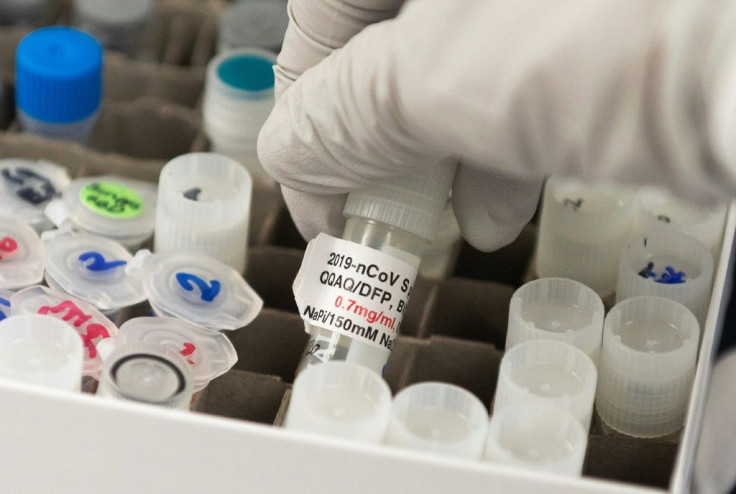Eli Lilly Seeks FDA Approval On Coronavirus Treatment, Potentially Easing Rush For A Vaccine
KEY POINTS
- Eli Lilly's three trials over the summer yielded positive results in patients with mild- to moderate-cases of coronavirus
- The company could have nearly 1 million doses ready for distribution by the end of 2020 with FDA approval
- Temporary protections provided by the antibody treatment could potentially give pharmaceutical companies more time to develop stronger vaccines
Pharmaceutical company Eli Lilly & Co. asked the U.S. Food and Drug Administration Wednesday to authorize the use of a potential coronavirus treatment that’s shown promising results during clinical trials.
Eli Lilly asked the FDA to authorize the drug’s emergency use after results for their first three clinical trials all came back positive in people with mild- to moderate-cases of coronavirus. If approved, Eli Lilly said it could have 100,000 doses ready to go within a month and 1 million ready by the end of 2020.
However, it would not be used on more severe cases, since it has not proven to be as effective in treating those cases.
The drug, codenamed LY-CoV555, is in an antibody drug Eli Lilly has been developing with Canadian pharmaceutical company AbCellera Biologics Inc. AbCellera started by taking blood samples from one of the first coronavirus patients in the U.S. to recover when it began working with Eli Lilly. The two then started developing an antibody drug treatment based on the antibodies found in the patient’s blood sample.
Trials began in June, when hospitalized patients being treated for coronavirus were dosed randomly with either the drug or a placebo to measure the drugs effectiveness. After results showed the drug helps treat the virus, phase 2 trials were conducted among vulnerable populations who were randomly administered a placebo or one of two potential drugs, including alternate antibody treatment LY-CoV016.
The most recent trials were conducted in nursing homes and, as before, showed the drug helped treat the symptoms of coronavirus and could temporarily protect against it. The latter half of the results would be important because it could ease the pressure on other pharmaceutical companies to develop a full vaccine.
One company which would benefit from this, in that regard, is AstraZeneca Plc. U.S. trials for AstraZeneca’s potential vaccine have been on hold since September after one patient was diagnosed with unexpected neurological symptoms after being inoculated. Trials have continued overseas.
That said, AstraZeneca may still rush to get a vaccine out as its pledge not to profit from it runs through July 2021. Under its current contractual agreement, Astrazeneca could declare the pandemic over by then and begin profiting off its distribution. The period could be extended if AstraZeneca acts "in good faith" if the pandemic is not considered over.
The company said it expects to receive an update about possibly resuming its U.S. trials in the next two weeks.

© Copyright IBTimes 2025. All rights reserved.





















